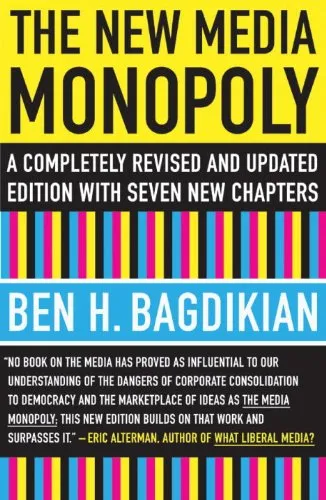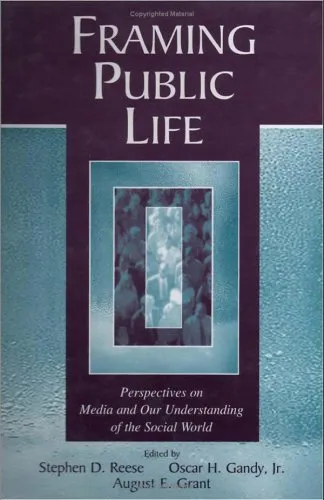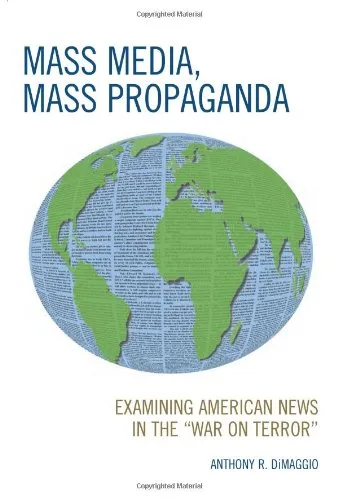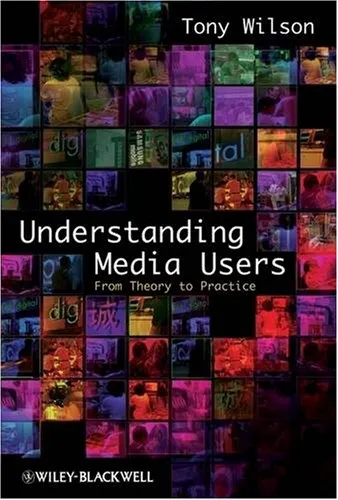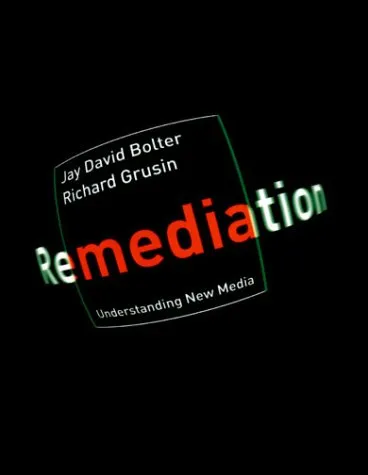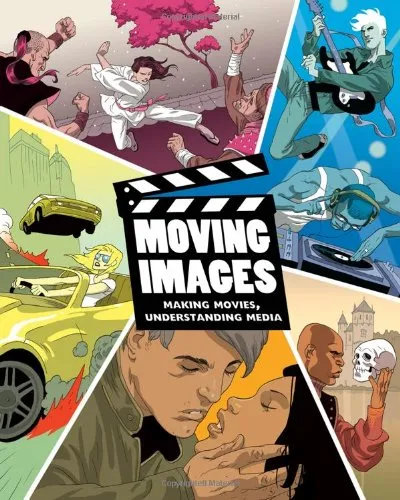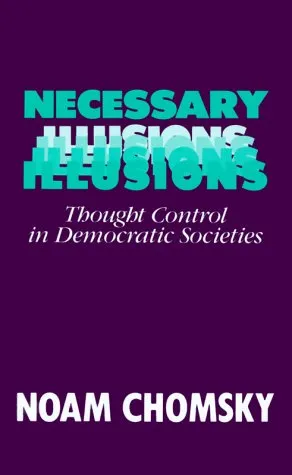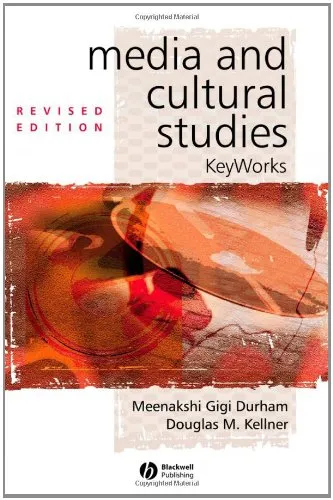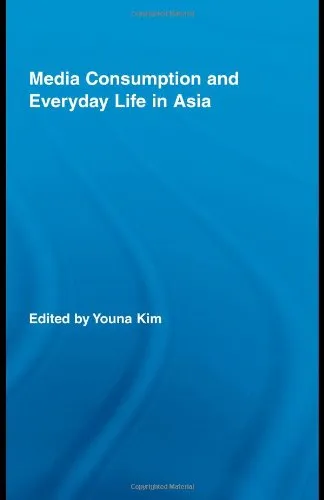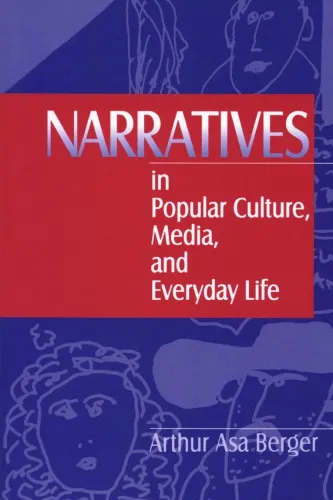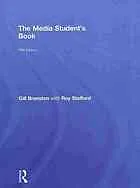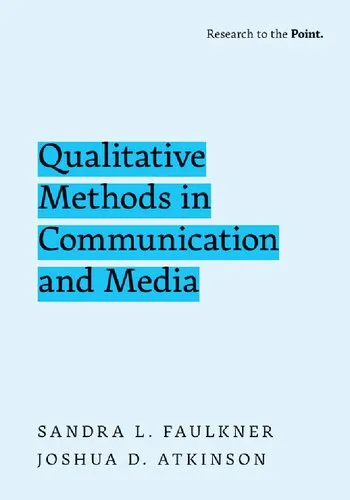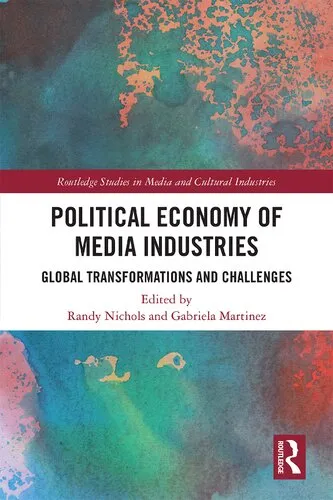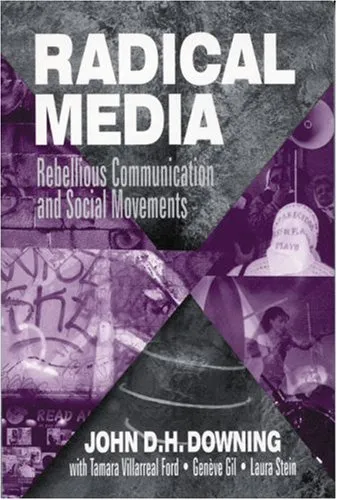The New Media Monopoly
4.6
بر اساس نظر کاربران

شما میتونید سوالاتتون در باره کتاب رو از هوش مصنوعیش بعد از ورود بپرسید
هر دانلود یا پرسش از هوش مصنوعی 2 امتیاز لازم دارد، برای بدست آوردن امتیاز رایگان، به صفحه ی راهنمای امتیازات سر بزنید و یک سری کار ارزشمند انجام بدینکتاب های مرتبط:
خلاصه تحلیلی کتاب
کتاب The New Media Monopoly اثر Ben H. Bagdikian یکی از مهمترین متون تحلیلی در حوزه پژوهش رسانه و ارتباطات است که به بررسی تمرکز روزافزون مالکیت رسانهای در دستان تعداد محدودی از شرکتها میپردازد. نویسنده با نگاهی نقادانه، روندی را ترسیم میکند که در آن تنوع صداها و دیدگاهها بهشکلی نگرانکننده کاهش یافته و قدرت انتقال پیام به انحصار درآمده است.
این اثر ادامه و بازنگری بر کتاب معروفتر نویسنده، «The Media Monopoly» است، اما با توجه به تغییرات فناوری و گسترش Internet، مسائلی تازه را مطرح میکند. Bagdikian تبیین میکند که چگونه مالکیت انحصاری رسانهها نهتنها در تلویزیون و چاپ، بلکه در فضای دیجیتال نیز رخنه کرده و میتواند آزادی اطلاعات و مردمسالاری را تهدید کند.
در این کتاب، تحلیلها بر مبنای دادههای مستند و مشاهدات میدانی است، و نویسنده تلاش کرده تصویری روشن از شبکههای پیچیده قدرت رسانهای ترسیم کند. گرچه سال انتشار دقیق این نسخه (اطلاعات نامشخص، منبع معتبر در دسترس نیست) ذکر نشده، محتوای کتاب همچنان معاصر و کاربردی باقی مانده است.
نکات کلیدی و کاربردی
یکی از محورهای اصلی کتاب، بررسی اثرات تمرکز رسانهها بر تنوع دیدگاهها و کیفیت محتواست. این تمرکز میتواند به یکپارچهسازی پیامهای غالب و حذف دیدگاههای حاشیهای منجر شود، که در بلندمدت جریان آزاد اطلاعات را محدود میکند.
نکته مهم دیگر، تأثیر فناوریهای نوین و شبکههای آنلاین در بازتعریف مفهوم مالکیت رسانهای است. اینترنت، که در ابتدا بهعنوان بستری آزاد تلقی میشد، اکنون تحت نفوذ شرکتهای بزرگ قرار گرفته و الگوریتمها میتوانند با هدایت مصرفکنندگان به سوی محتوای خاص، نوعی انحصار اطلاعاتی ایجاد کنند.
Bagdikian بر این باور است که شناخت ساختارهای مالکیت و الگوهای توزیع محتوا برای پژوهشگران، روزنامهنگاران و سیاستگذاران ضروری است تا بتوانند بر مخاطرات احتمالی پیشگیری کنند. این آگاهی میتواند موجب افزایش شفافیت و مسئولیتپذیری رسانهها شود.
نقلقولهای ماندگار
در طول کتاب، نویسنده گزارههایی ارائه میدهد که میتوانند بهعنوان هشدار یا الهام برای خوانندگان تلقی شوند؛ این گزارهها ترکیبی از تحلیل و بیان ارزشهای بنیادین آزادی بیان هستند.
"در جهانی که پنج شرکت بر پایگاه اطلاعاتی اکثریت مردم تسلط دارند، استقلال فکری در خطر است." نامشخص
"کنترل جریان اطلاعات، کنترل شیوه اندیشیدن است." نامشخص
"اگر رسانهها تنها یک صدا را تکرار کنند، دموکراسی به پژواک تبدیل میشود." نامشخص
چرا این کتاب اهمیت دارد
اهمیت کتاب The New Media Monopoly فراتر از یک مطالعه نظری است؛ این اثر مانند نقشهای برای درک خطوط و مرزهای قدرت رسانهای عمل میکند. پژوهشگران و تحلیلگران از این کتاب بهعنوان ابزاری برای شناسایی فرصتها و تهدیدها در حوزه ارتباطات و رسانه استفاده میکنند.
همچنین برای سیاستگذاران، این کتاب میتواند هشداری باشد درباره پیامدهای قانونگذاری که بهطور ناخواسته یا آگاهانه، انحصار رسانهای را تشدید میکند. خوانندگان عام نیز با مطالعه آن، بینشی تازه نسبت به منابع خبری خود و سازوکارهای شکلگیری افکار عمومی کسب میکنند.
نتیجهگیری الهامبخش
کتاب The New Media Monopoly نهتنها یک سند تحلیلی درباره روندهای خطرناک تمرکز رسانهای است، بلکه دعوتی است به بالابردن آگاهی و تقویت نگاه انتقادی در برابر منابع اطلاعاتی روزمره. در جهانی که مرز
Analytical Summary
Published by Ben H. Bagdikian, The New Media Monopoly stands as a pivotal work in the study of media ownership, exploring the profound implications when a handful of corporations dominate the flow of information in society. This updated edition from his earlier landmark, The Media Monopoly, reflects Bagdikian's decades-long scrutiny of the evolving media landscape.
In the book, Bagdikian meticulously documents how massive conglomerates have absorbed diverse outlets, forging a marketplace where economic power translates into political influence. His analysis goes beyond surface-level observations, delving into the systemic risks of media consolidation—including the erosion of independent journalism and the narrowing of public discourse. By mapping the connections between corporate structures and content delivery, he presents a compelling, data-informed narrative relevant to academics, policymakers, and engaged citizens.
The text serves as both a historical account and a contemporary warning, highlighting how these changes affect reporting on local and global issues. While specific corporate ownership patterns may shift over time, the underlying dynamics Bagdikian describes—pressures to prioritize profit over public interest—remain strikingly pertinent. Information about awards the book may have received is unavailable due to no reliable public source confirming such details.
Key Takeaways
Bagdikian distills decades of research into lessons that challenge the reader to consider the ethical and civic dimensions of media control. This section synthesizes those insights.
First, media consolidation tends to limit diversity of viewpoints, as conglomerates exert influence over what stories are told and how. Second, corporate influence on journalism often prioritizes advertiser-friendly content, subtly shaping public awareness. Third, a concentrated media environment carries inherent risks for democracy, stifling dissent and investigative rigor. Fourth, critical media literacy emerges as a defense, empowering audiences to question sources and motivations. Lastly, Bagdikian underscores the importance of policy frameworks that protect independent voices in the information ecosystem.
Memorable Quotes
Though concise and analytical, Bagdikian’s work contains passages that resonate deeply, encapsulating the urgency of his message.
When fewer voices dominate the channels of communication, the potential for manipulation of public opinion increases exponentially.Unknown
The public’s right to know is the first casualty when news falls under the sway of corporate priorities.Unknown
Why This Book Matters
In an era of rapid consolidation across digital and traditional media, The New Media Monopoly offers prescient guidance.
Academics will find that the book’s robust methodology and clear exposition make it a reliable reference point for research on media ownership. Professionals in journalism and policy can apply its analyses to contemporary challenges, assessing how regulatory decisions influence the plurality of voices. For serious readers committed to civic engagement, Bagdikian’s work encourages vigilant consumption of news and thoughtful participation in public discourse.
Moreover, the book’s intersection of sociology, political science, and communications provides a multidisciplinary framework that remains relevant, even as technology reshapes the media industry. Its insight into the enduring tension between profit motives and democratic ideals ensures its continued value in discussions of media reform.
Inspiring Conclusion
By engaging with The New Media Monopoly, readers gain a nuanced comprehension of forces shaping the information they rely on every day.
This is more than a book—it is a call to awareness, urging informed citizens to advocate for diverse and independent media. Bagdikian’s authoritative yet accessible style equips you with the critical tools needed to discuss, teach, and challenge the prevailing structures that guide our news consumption. To honor the spirit of the work, read it attentively, share its lessons widely, and ignite conversations that may pave the way for a more open and democratic media landscape.
دانلود رایگان مستقیم
شما میتونید سوالاتتون در باره کتاب رو از هوش مصنوعیش بعد از ورود بپرسید
دسترسی به کتابها از طریق پلتفرمهای قانونی و کتابخانههای عمومی نه تنها از حقوق نویسندگان و ناشران حمایت میکند، بلکه به پایداری فرهنگ کتابخوانی نیز کمک میرساند. پیش از دانلود، لحظهای به بررسی این گزینهها فکر کنید.
این کتاب رو در پلتفرم های دیگه ببینید
WorldCat به شما کمک میکنه تا کتاب ها رو در کتابخانه های سراسر دنیا پیدا کنید
امتیازها، نظرات تخصصی و صحبت ها درباره کتاب را در Goodreads ببینید
کتابهای کمیاب یا دست دوم را در AbeBooks پیدا کنید و بخرید
1452
بازدید4.6
امتیاز0
نظر98%
رضایتنظرات:
4.6
بر اساس 0 نظر کاربران
Questions & Answers
Ask questions about this book or help others by answering
No questions yet. Be the first to ask!
